
Newsletter
Stay connected
Stay informed with our newsletters! Discover exciting events and training opportunities and explore captivating case studies. Join us and explore the world of KULI!
Subscribe to our Newsletter
KULI Newsletter 14/2022
Including Python Scripts in KULI, Modelling Support and Access to Online Information, KULI hvac workshop, 2-day KULI Basic Training (Online), KULI for thermal simulation of off-highway equipment
Including Python Scripts in KULI
By adding Python scripts to KULI 17, the possibilities of KULI regarding user-defined extensions have been greatly expanded. With the help of the new Python Controller component, Python scripts can be integrated anywhere in the KULI signal path. Since there is a large Python community and a plethora of freely available resources for Python, there are hardly any limits to the extensibility of KULI. Just a few possible applications in KULI:
- Implementation of arbitrary complex control logic (Python scripts can use complex structures and mathematical toolboxes with solvers, optimizers, etc.)
- Quickly write your own small calculation controllers (e.g. a controller for calculating a moving average of a signal)
- Live display of results during calculation (you can use the plot functionalities of Python to display selected values or also the progress of an optimization in a graphical way)
- Import data from Excel directly into a KULI simulation
- Use available libraries and resources for further extensions (e.g. use the CoolProp library for access to even more fluid properties)
The Python controller supports an arbitrary number of inputs and outputs, dedicated startup and termination functions can be specified to perform special tasks at the initialization of the simulation and after the simulation has been finished, docstrings are handled as tooltips, and much more.
The KULI tutorial includes an easy example with a simple Python script. A list of more advanced Python scripts is available in the KULI Online Library and will constantly be extended.
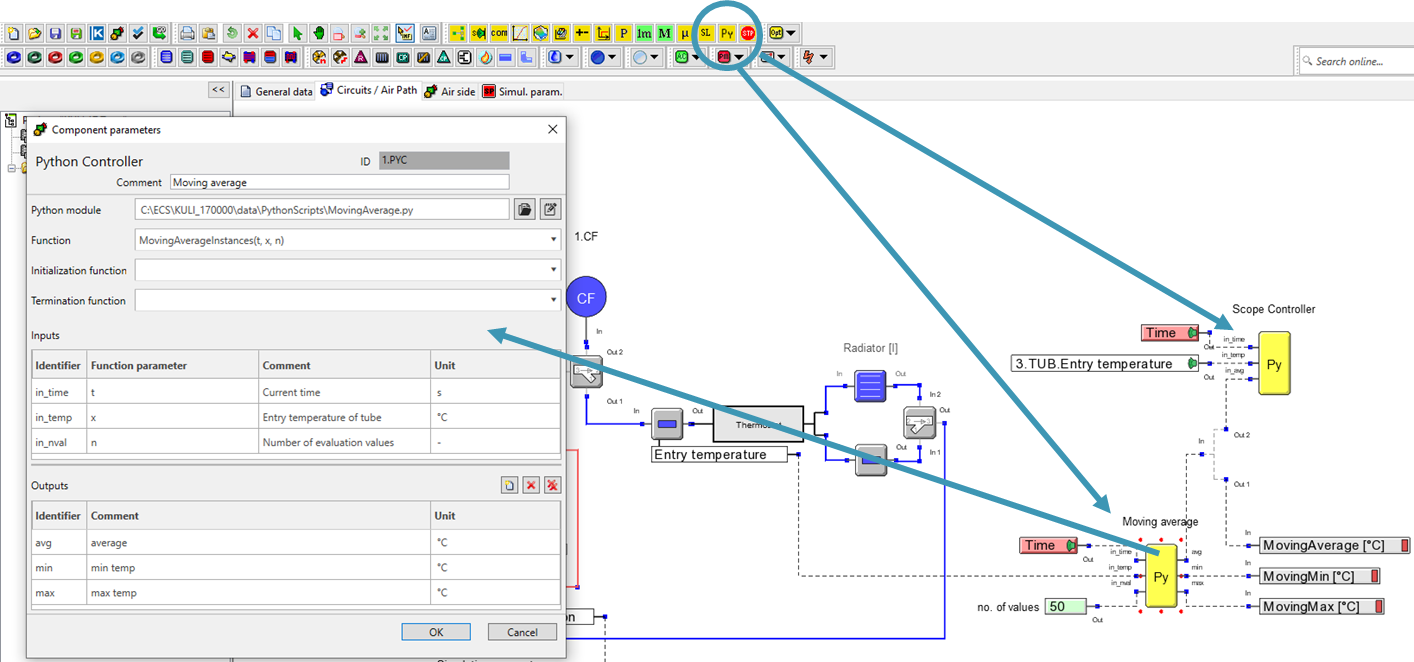
Modelling Support and Access to Online Information
Apart from the presence of the Python controller KULI 17 also includes a set of additional new features, mainly focusing on assisting the user in detecting and avoiding problems and in finding relevant information for better modelling.
- Modelling support: KULI ships with a large set of medium files that can be used in components and circuits. The system check in KULI 17 now also verifies if there is a difference between the medium defined in a component and the medium defined in the circuit in which the component is located. KULI distinguishes between two levels of severity:
- A warning is shown if the medium in the circuit and the medium in the component are of different types (e.g. an oil vs. a coolant) because in this situation most likely something is wrong. This can occur if e.g. the inner and outer sides of a parallel flow cooler were placed in the wrong circuits.
- An information is shown if the medium in the circuit and the medium in the component have the same type but still have different medium files (e.g. different types of oil). In such a situation typically the correct recalculation of the properties is given, but nevertheless it could be a sign of some minor modelling mistake.
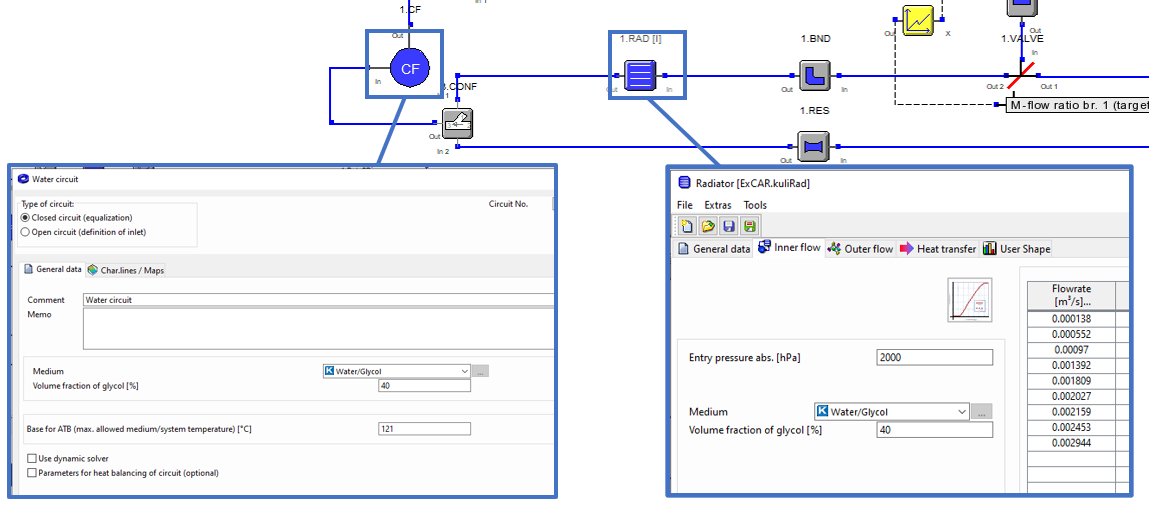
- Direct access to online information: KULI 17 now offers a search field directly in the toolbar.

By entering a search string there you can quickly search in the KULI online manual, KULI online library, and KULI knowledge base. An overview of the search results is displayed with links to the relevant pages in the KULI online help.
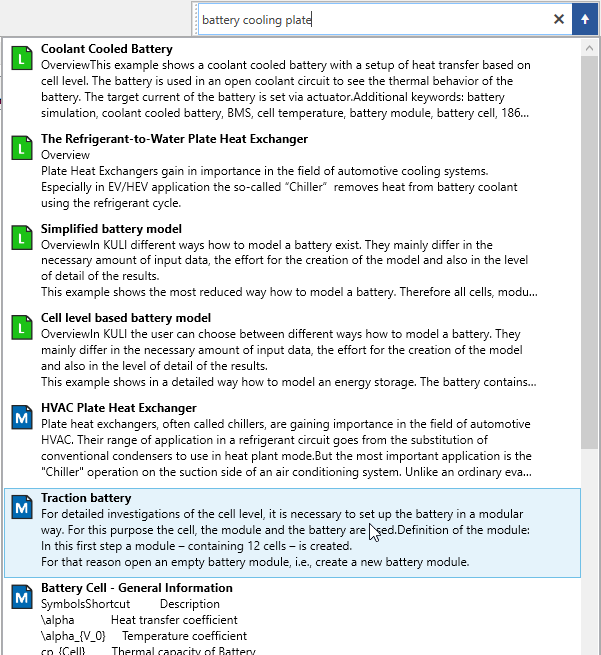
- Overview of initial temperatures: KULI 17 provides a quick way to figure out initial temperatures used in different components in a fluid circuit. The maximal and minimal initial temperatures are shown at the start of the simulation in the Output panel. And in KULI lab the initial temperatures of all components inside such a circuit can be found in a dedicated folder for each Dynamic solver circuit.

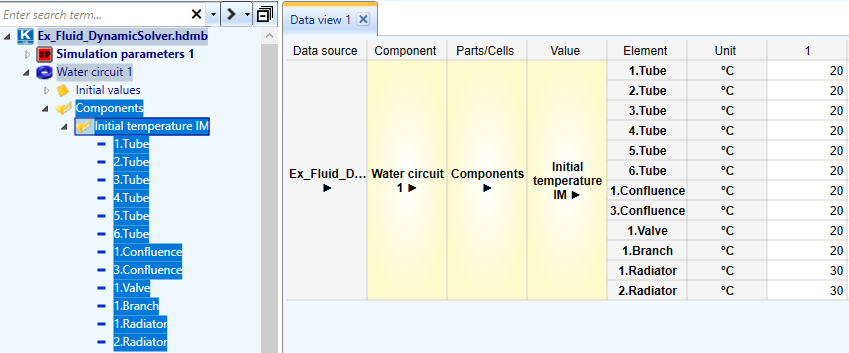
KULI hvac workshop
We invite everyone to participate in our upcoming KULI HVAC Workshop Series! Starting this autumn, we will come to your region and organize full-day, free-of-charge events, where we will discuss with you everything from fundamentals to upcoming technology developments in HVAC systems.
We believe that efficient heating and cooling is one of the key factors for overcoming the range issues in electric vehicles. But in order to do so, it is important to understand how refrigerant loops work, how they can be applied in modern vehicles and what tools and technologies are available. And, of course, simulation will help you to understand the complex interactions between different systems in a car and will allow you to identify the main energy flows. In our workshop you will be able to try this out yourself!
Our first event will take place in the Detroit area, US, on October 6th, 2022.
Check out our KULI homepage for further upcoming dates, locations and registration options!
Feel free to reach out to us, so we can organize the next Workshop close to your region!
Agenda HVAC-Workshop
- AC System Basics
- Working Principle and Phase Diagram
- Main Components and Variants
- From ICE to EV
- Modelling AC-Systems in KULI
- Component and system modelling basics
- Heat Pumps
- Architecture overview
- Air sourced heat pumps
- Waste heat usage
- Compressor efficiency and limitations
- Detailed Complete Vehicle Simulation Model
- Model Overview
- AC System and Controls
- Opportunity to try out different ambient temperatures, drive cycles, cabin temperature targets
- Technology Outlook
- CO2 Systems
- De-humidification and potential energy savings
- Heating and Cooling in FCEVs
2-day KULI Basic Training (Online)
We would like to invite you to our next online KULI base training.
The event will be held on the 27th of September and 29th of September.
Throughout the event you will…
-
- learn the basic functions of the thermal management tool KULI
- get insights into the theory behind the KULI components
- apply these methods to optimize components and systems
- benefit from the practical experience of KULI experts
- profit from a 2-week test license of all KULI modules
For further information, agenda and registration please visit our website.
KULI for thermal simulation of off-highway equipment
While the “electrification wave” has already caused severe “storm warnings” in the once so peaceful ocean of passenger cars, first ripples also show in the area of off-highway equipment. Both legislation and public opinion force all major equipment manufacturers to look more and more closely at alternatives to the combustion engine… and this means leaving well-established and -understood technology paths. This is especially true in the field of thermal management.
Just thinking about electric batteries, the global use of off-highway vehicles poses significant challenges:
- In hot climates batteries must not overheat. This would cause breakdown or at least significantly reduced lifetime… an absolute no-go in a business where reliability and low total costs of ownership are imperative!
- In cold climates batteries have to be kept warm enough to perform as designed and allow, for example, also fast charging.
- And all of the related heating and cooling must be done in a way which
- has no negative impact on heating and cooling of the operator compartment and
- is as energy efficient as possible.
Trying to achieve this via extensive testing is very hard:
- Many different target climate zones mean a huge number of individual tests
- Accurate and consistent testing can only be done within climate chambers. Large machinery will be even hard to squeeze in!
- High testing costs meet typically quite low production numbers of the final vehicles. In a cost-competitive environment this can be very challenging.
And this is where simulation can be extremely useful. Yes, you will still need some tests for calibration and validation of your models and no, I cannot recommend “purely virtual” vehicle development. But having to do only 4 test runs instead of 40 is a huge cost- and time-saver. Probably even a life-saver for some smaller companies.
Together with our colleagues from the cooling system developer and supplier Ymer Technology, we have put this claim to the test. We have set up a complete KULI simulation model for a current heavy duty electrified off-highway vehicle. Based on this, we investigated both steady state operating points, but also relevant transient test cycles… at different ambient conditions. And that is one of the good things about simulation: In a model it is just a click to switch from +45°C to 0°C and see what happens to your vehicle.
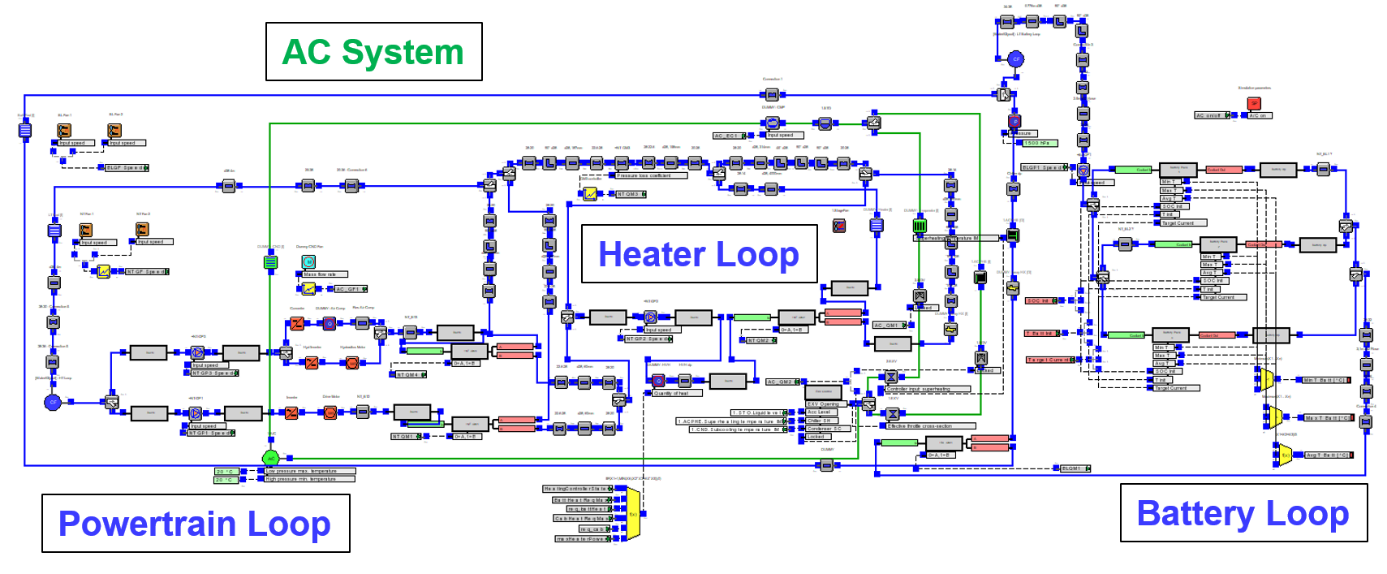
Specifically, this allows you to investigate
- if temperature constraints are violated,
- where thermal bottlenecks in your system are and
- how you can optimize your thermal system controls to run your vehicle safely and efficiently.

Our mutual findings and experiences show, that integrating simulation as a standard part of your development workflow indeed reduces development efforts a lot.
To wrap it up in one short sentence: Simulation allows you to build better vehicles in shorter time.
And while our own experiences and capabilities in the exciting new field of off-highway electrification grow every day, we also see that many companies still hesitate to take the leap into a new era.
Don´t hesitate. Electrification is coming, new HVAC technologies are coming… and we are here to support you to facilitate the transition into the related new development processes.
Some of the biggest global players in off-highway business use KULI software for many years as their thermal management standard development tool.
Innovation leaders like Ymer Technology are extremely valuable partners to push the technological boundaries ever further.
And we are looking forward to be working with you as well…
just let us know, when you are ready to start!
All these topics are discussed in detail in our KULI 17 Release Video and you can find the full list of new features in our Release Notes!
BACK TO OVERVIEW

Quicklinks
Product Info Events & Trainings E-Learning
Download our products
Software Publications